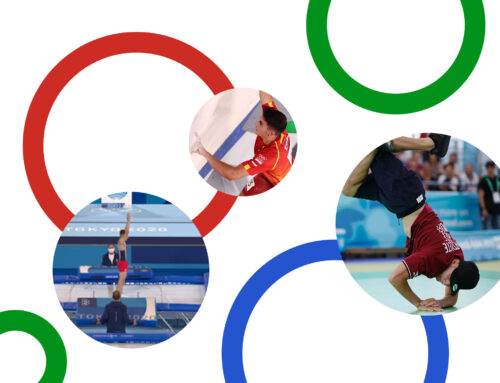Leah Pizer
Goldens Bridge parent of a 19-year-old boy who plays baseball for the University of Tampa
Nic Denyer
South Salem parent of 16-year-old twin boys; Rugby coach at Marist College
Craig Kelly
Katonah parent of a 9-year-old boy and 7-year-old girl; PE teacher at PS 267 in Manhattan
Exercise is an important part of staying healthy. Whether it’s going to the gym, taking a walk with friends or secretly doing a cardio dance class in your bedroom where no one can see you mess up, we all find a type of exercise we enjoy. But what about our kids? These days, it seems the best way to get them away from their screens is to sign them up for sports. But do the benefits outweigh the drawbacks? We sat down with a few parents who live in the world of youth sports to get their thoughts.
Katonah Connect: What are the overall benefits of kids playing sports?
Craig: The social interactions with their teammates, the fundamentals they’re developing and the relationships that they’re building with the kids on their team.
Nic: One of the biggest benefits is the exercise, and secondary to that is being part of a team. But I disagree with it being a social thing because there is a structure to it and there is development. For me, social things are more for recreational activities as opposed to sports.
Leah: I agree with both of your comments. And I also love that team sports teach kids how to put their team’s success ahead of their own success. That’s hard to teach and not easily taught outside of the sports realm.
Katonah Connect: What about just having fun? Do you think that that’s a benefit for younger children?
Nic: I’ll be blunt. This town has not encouraged the fun aspect of sports. Over the 22 years I’ve been here, it’s been very frustrating. From a very young age, they push them to be on travel teams. And that, again, relates to the social aspect of it. Because in sports, there’s a bigger difference in talent on the field than in just normal life, which can actually be detrimental to kids if they just want to go out there and try the sport. This town has not, as far as I’m concerned, given kids the opportunity to go out there and have fun playing sports.
Katonah Connect: Do you think it’s different in other towns?
Nic: I don’t, unfortunately. I talked to a guy in Philly once – his kids were the same age as mine, and he said exactly the same thing. He said, ‘You know, it’s just so hard-nosed. It’s like you can’t just go out there and have fun.’
Leah: Years ago, I was on the board of Lewisboro baseball, and we used to have an arrangement with lacrosse that we would not schedule games at the same time so that kids could actually play both sports. You shouldn’t have to pick and commit. But we found soccer didn’t care what we did, and they would never work with us. It may have changed since then. But you lose the ability to play for fun once they try to force you to pick just one sport.
Katonah Connect: Do you think that’s because parents are just so competitive and pushing their kids? Or is it due to our culture?
Craig: A little of both, actually. And I think there’s also a burnout rate when kids get into their teens. I was a golf professional before becoming a phys. ed teacher and I gave golf lessons at a country club. I would see kids that were just pushed and pushed by their parents, and when they turned 18, they would quit because they hated the sport.
Nic: I’m a big tennis player and golfer, and to me, that’s more of an individual sport issue, rather than a team sport issue.
Craig: Definitely. When you’re part of a team and the coaches create a fun environment, the kids want to keep coming back.

Katonah Connect: Do you think part of the difference between quitting a team sport versus an individual sport is because they think they’ll let their team down?
Nic: No. It’s the difference between the coaches. Because in individual sports, there aren’t as many coaches as organizers. So, the parents really have to push their kids in an individual sport.
Leah: As parents, we definitely have to be cognizant of pushing our children too much or living out our own childhood dreams through our children.
Katonah Connect: Are there well-meaning parents that see their child’s potential and know that if they’re ever going to become great, they must put some pressure on their child?
Leah: I think it depends. This is extreme, but the father of one of my son’s travel teammates was a New York Yankee. The kid was the number one MLB draft pick at 18 years old. He spent his entire senior year doing nothing but baseball because they knew he was going to get somewhere. But his parents also found it very important that he played with kids like my son who was good, but he wasn’t going to the MLB. They liked the camaraderie of the travel team. So, yes, there’s absolutely the extreme, and for some people, maybe it’s worth it. But for most people, that’s never going to happen.
Nic: I’ve actually turned full circle on that one. I’m disappointed that so many people say your kid’s never going to make it. Why can’t you have some expectation that they might make it? For example, in Australia, all the private schools play rugby, and there are lots of teams. At one point, this kid who was the eighth-best player in his position at his high school went on to play for the Australian team. He did the hard work and got himself in a situation where he was better than anybody else.
Katonah Connect: Do you think competitive sports places a strain on the family financially and/or emotionally, especially when a family has more than one child, but one child is a star athlete?
Leah: It’s super expensive. A baseball bat can cost $300 or $400. Because we only have one child, we always told parents on the travel baseball teams that we would get their kids to the games. I knew there were parents with more kids who were trying to divvy it up, and some of their children probably felt left out, no matter how much they tried.
Nic: There’s also the pay-to-play issue, which has affected the US national soccer team. We’ve created a landscape in sports where you’re never going to be good unless you can afford it. Most of the kids on the US national team are the products of their parents being able to pay $10, $15 or $20 grand a year to give them everything they need to get on the national team. And then there are the kids that are just playing in the backyard and are 10 times better at 10 years old, but their parents can’t afford to send them to that summer camp, so they don’t get those opportunities.
Leah: Lately, there’s all this talk about nepo babies in acting, but that doesn’t really happen with athletes. It’s still one of the few places where your raw talent can get you places.
Craig: Right, kids of professional athletes can’t just be professional athletes. They have to earn it.
Nic: Well, to give you an example of what I’m saying, there is an inner-city school that derives most of its players from low-income families, and they all play in the city. The other day, I asked the coach if there was potential for any of them to come to Marist because these kids are good athletes, not necessarily good rugby players, but good athletes, and a little bit of fine-tuning could make them into good players. But that opportunity doesn’t exist for them. They don’t have the grades, and they can’t afford it.
Katonah Connect: Regarding nepo babies, the reality is that if you’re Landon Donovan’s son and you’re learning to play soccer, you’re obviously going to have access to a lot of money and coaches and people who can help you.
Craig: Of course, but you still have to perform.
Katonah Connect: True. So, what advice would you give parents about kids and sports?
Nic: You have to be relaxed about it, especially in the early stages, and let it unfold. Your expectation has to be that they’re going out there to just enjoy themselves and be part of a team. Try to give them as many opportunities as possible, even if it’s outside of the school district or outside of your town.
Craig: As a parent, be supportive of the program that your child is choosing, but you can offer different possibilities. Don’t feel like you must make a decision by the age of five about what sport they are going to do for the rest of their education.
Leah: Know and respect your child, what they like and what they are good at. You don’t want to push kids too much into one thing, but you also don’t want to write off kids because they haven’t hit their growth potential yet. Really get to know the coaching philosophy of the program before you commit because a bad coach can make or break it for you. And be super cautious of people who tell you that if you spend $5,000, they will make your kid a star.
This article was published in the May/June 2023 print edition of Katonah Connect.
Gia Miller is an award-winning journalist and the editor-in-chief/co-publisher of Connect to Northern Westchester. She has a magazine journalism degree (yes, that's a real thing) from the University of Georgia and has written for countless national publications, ranging from SELF to The Washington Post. Gia desperately wishes schools still taught grammar. Also, she wants everyone to know they can delete the word "that" from about 90% of their sentences, and there's no such thing as "first annual." When she's not running her media empire, Gia enjoys spending quality time with friends and family, laughing at her crazy dog and listening to a good podcast. She thanks multiple alarms, fermented grapes and her amazing husband for helping her get through each day. Her love languages are food and humor.











